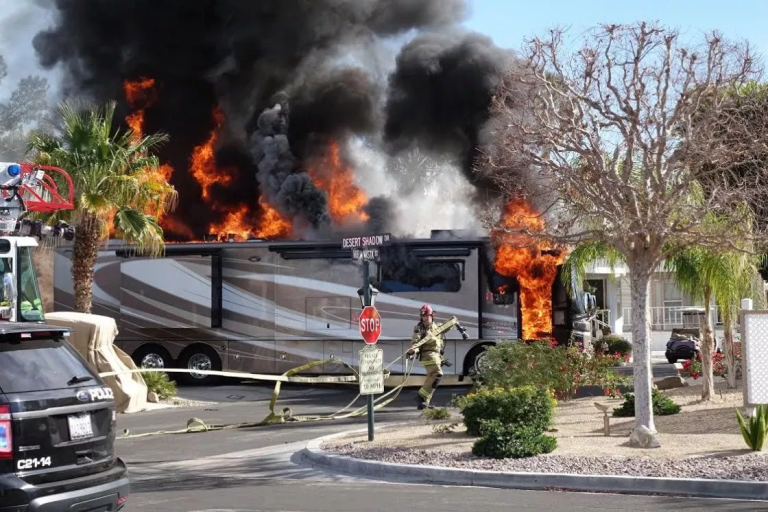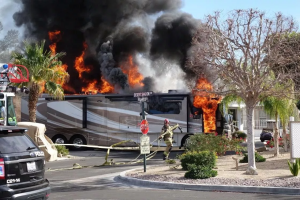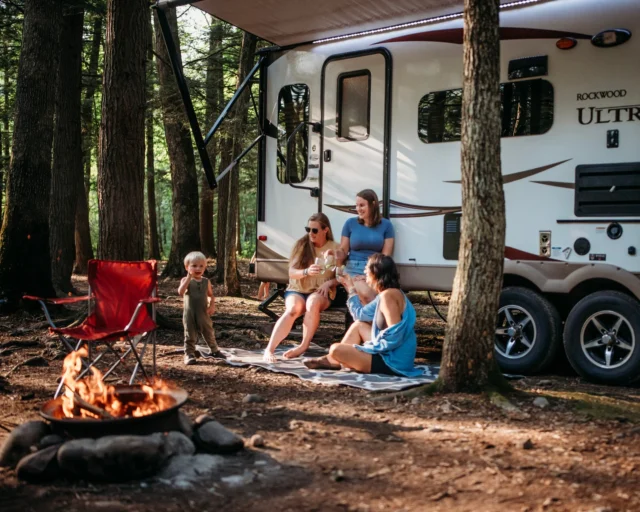

Whether you travel to remote arctic locations or stay within the confines of your state, there’s no doubt you still need to turn on your RV propane heater to warm up those winter nights. Your comfort and safety are two of the most important things whilst RVing, so today we’re going to tell you the most important facts about propane heaters for RVs.
You Need a Carbon Dioxide Detector
If you don’t already have a carbon dioxide detector in your RV, then you’ll want to purchase one ASAP. Propane and carbon dioxide can be a deadly combination, so it’s always better to be safe than sorry. Setting up a carbon dioxide detector near your RV propane heater will instantly alert you if there are any leaks. Be sure to routinely check that your fittings are securely in place, and if you suspect maintenance may be required, don’t put it off.
You Can Easily Refill Your Propane Cylinders
Propane has much less potential for fire or explosion than other heating gases, making it an easy alternative for refilling. Simply take your empty canisters to your nearest refill station and your RV propane heater will be warming you up again in no time!
Your RV Propane Heater Will “Cycle”
Your propane RV heater will also do a process known as “cycling”. This occurs when you turn on the thermostat and there is a delay of approximately 15 – 30 seconds before the blower runs. After another period of around 15 – 30 seconds, you will then begin to feel heat being emitted from the RV propane heater. When your desired warmth has been reached, you’ll also notice the burner will shut itself off, but the blower will continue to run for a short while afterward. This is a completely normal process that every propane heater will work through.
Ventilation is a Must
Another important fact about a propane heater for RVs is the fact that it doesn’t come with an air filter in it, therefore ventilation is a must. Keep your air flow at a maximum by ensuring you haven’t blocked the air vents or floor ducts in any way. Keep an eye out for stray shoes or ill placement of pet water bowls.
You Can Smell a Possible Propane Leak
Here’s the clever thing about your RV heater propane: there’s an additive (known as Ethyl Mercaptan) in it so you will smell an odor if there’s a possible leak. In its natural form, propane actually doesn’t have a smell, but this clever addition is there for you and your family’s protection. If you notice an unusual odor coming from your RV propane heater, shut it off immediately and seek service from a professional.
There Will Be a Strong Odor for the First Time
The smell of a propane leak is not to be confused with the odor your heater gives off when it’s turned on for the first time (or the first time in a very long time). While it can be alarming, there isn’t cause for panic with this smell, particularly if it eases after a short while. Just ensure none of your vents are blocked or restricted in any way.
An Old LP Gas Regulator Cannot Be Repaired
LP gas regulators fail due to unavoidable circumstances, especially from wear and tear relating to age. While it might seem like an easy fix, the problem is, you can’t actually fix an old and broken-down gas regulator. Instead, you must have your RV propane heater’s existing gas regulator fully-replaced. Additionally, if seems as though your regulator is working, but not at its full capacity, then you will need to contact a certified technician. Sometimes, it may need some adjustments, whereas other times, it could indicate a potential leak.
If you’re without an RV propane heater but want to stay warm this winter, you can take advantage of some great prices on websites such as Amazon (like this Suburban Furnace). Your local RV accessories store will also be able to provide you with plenty of information regarding their heating range. Here’s to a wonderful and warm RV adventure!
This post may contain affiliate links.






